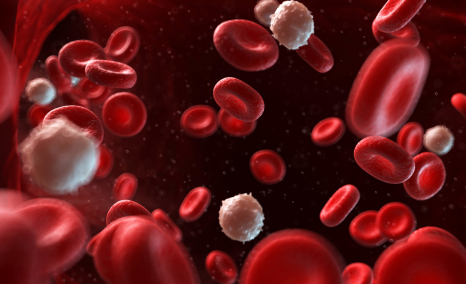RMAT designation offers several advantages, including early and frequent interactions with the FDA, guidance on surrogate or intermediate endpoints, and streamlined post-approval requirements, potentially expediting NXC-201’s path to market approval. As Immix Biopharma advances its clinical trials, this milestone strengthens its position in the development of cell therapies for AL amyloidosis and other immune-mediated diseases.
Biodexa’s eRapa Granted FDA Fast Track for Familial Adenomatous Polyposis
Biodexa Pharmaceuticals announced that the FDA has granted Fast Track designation for eRapa, an encapsulated form of rapamycin being developed for familial adenomatous polyposis. This designation is intended to accelerate the development and review of therapies for serious conditions with unmet medical needs. FAP is a hereditary disorder characterized by the growth of numerous polyps in the colon and rectum, which, if left untreated, inevitably leads to colorectal cancer. Currently, the only treatment option is surgical resection, highlighting the urgent need for alternative therapies.
In a Phase II study, eRapa demonstrated a promising safety profile and efficacy, with a median 17% reduction in total polyp burden at 12 months and an overall 75% non-progression rate. Patients in the preferred dosing cohort experienced an 89% non-progression rate and a 29% median reduction in polyp burden. These findings support eRapa’s potential as a non-surgical treatment option for FAP, paving the way for its registrational Phase III study.
Biodexa has already secured FDA Orphan Drug designation for eRapa in FAP and plans to seek similar recognition in Europe. With no approved medical treatments available, eRapa could represent a breakthrough for patients at risk of developing colorectal cancer. The company remains focused on advancing its clinical program to bring much-needed therapy to individuals affected by this rare but life-threatening condition.
FDA Approves AbbVie’s EMBLAVEO for Complicated Intra-Abdominal Infections
AbbVie has received FDA approval for EMBLAVEO, the first fixed-dose intravenous monobactam/β-lactamase inhibitor combination antibiotic. Approved for use with metronidazole in adults with complicated intra-abdominal infections (cIAI), it targets multidrug-resistant Gram-negative bacteria, a growing global health concern due to rising antimicrobial resistance (AMR). The approval is based on limited clinical safety and efficacy data, addressing a critical gap in available treatment options.
“The evolution of antimicrobial resistance has left many patients with few or no treatment options, leading to extended hospital stays and increased mortality,” said Dr. James A. McKinnell, an infectious disease specialist. “EMBLAVEO offers physicians a crucial new option to combat these challenging infections.” Dr. Roopal Thakkar, AbbVie’s Chief Scientific Officer, added, “As bacteria evolve, collaboration across industry, government, and clinical experts is essential. We are proud to bring this novel treatment to the fight against AMR.”
EMBLAVEO combines aztreonam, a monobactam antibiotic, with avibactam, a β-lactamase inhibitor that protects against resistant bacterial enzymes, restoring its efficacy against highly resistant pathogens. Supported by prior studies and the Phase III REVISIT trial, the drug received FDA Fast Track and QIDP designations, expediting its development and regulatory review. Its approval marks a significant advancement in the treatment of severe, drug-resistant infections.
Insmed’s Brensocatib Gets FDA Priority Review for Bronchiectasis Treatment
Insmed has announced that the FDA has accepted its New Drug Application (NDA) for brensocatib, granting it a Priority Review for non-cystic fibrosis bronchiectasis. With a target action date of August 12, 2025, brensocatib could become the first approved treatment for the disease and the first in a new class of DPP1 inhibitors targeting neutrophil-mediated conditions. The decision follows strong results from the Phase III ASPEN study, which demonstrated significant reductions in pulmonary exacerbations over a 52-week period.
“Bronchiectasis is a chronic disease with no approved treatments, leaving many patients without options to manage pulmonary exacerbations,” said Martina Flammer, M.D., MBA, Chief Medical Officer of Insmed. “Brensocatib has the potential to transform the treatment landscape, and we look forward to working with the FDA to bring this much-needed therapy to patients as soon as possible.”
The FDA had previously granted brensocatib Breakthrough Therapy Designation, recognizing its potential to offer significant improvements over existing treatments. The drug was well-tolerated in clinical trials, with common adverse events including mild respiratory infections and headaches. If approved, brensocatib would represent a major step forward in addressing a condition that currently lacks targeted therapies.
Aro Biotherapeutics Secures FDA IND Clearance for ABX1100 in Late-Onset Pompe Disease
Aro Biotherapeutics announced that the FDA has cleared its Investigational New Drug (IND) application for ABX1100, a novel siRNA therapy designed for late-onset Pompe disease (LOPD). The company is advancing the treatment in a Phase I trial and plans to present encouraging early data at the 2025 WORLDSymposium. In a completed Phase I study in healthy volunteers, ABX1100 demonstrated durable knockdown of glycogen synthase 1 (GYS1) mRNA and protein in muscle tissue, supporting its potential as a targeted therapy for LOPD.
“FDA clearance of our IND application, combined with the promising data from our Phase I healthy volunteer study, provides tremendous momentum for the ABX1100 clinical development program,” said Susan Dillon, Ph.D., co-founder, president, and CEO of Aro Biotherapeutics. “Attaining these milestones bolsters our confidence as we continue enrolling patients with LOPD in our ongoing Phase I trial.”
LOPD is caused by a genetic deficiency that leads to excessive glycogen buildup in muscle tissue, resulting in progressive weakness. Using Aro’s Centyrin technology, ABX1100 delivers an siRNA payload directly to muscle cells to inhibit GYS1, reducing glycogen production. The completed Phase I study in healthy volunteers showed dose-dependent and sustained reductions of GYS1, with a 70% knockdown observed 10 weeks after two doses.
ABX1100 was well-tolerated, with no serious adverse events reported. “These results demonstrate consistent and dose-dependent delivery to muscle, translating our Centyrin-siRNA platform from the bench to bedside,” said Karyn O’Neil, Ph.D., co-founder and chief scientific officer of Aro.



